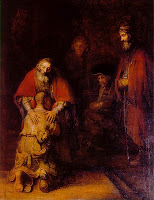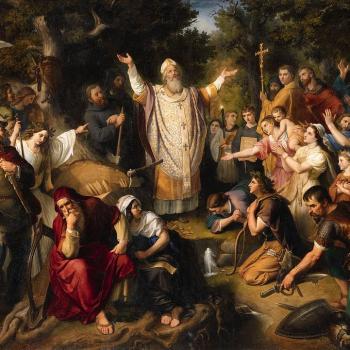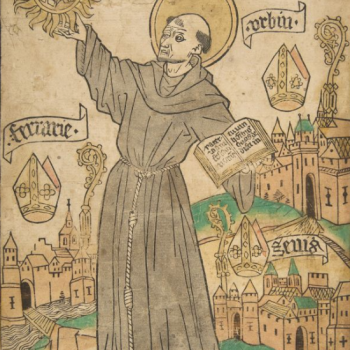I read through Ephesians today, and I was struck by it in a new way. It seems to be that Ephesians in many ways is laying out what it means to participate in the Divine nature, a idea explicitly mentioned in 1 Peter 1:4. It seems the author wishes to convey that God invites us to participate in the trinitarian life of unity, by living in the same unity of love that God has in the trinitarian economy. In other words the Missio Dei draws people into an economy of divine love.
Look at chapter one, which emphasizes the thee persons of the Trinity, and our place in relation to them. The amazing thing it the way that the author shows how we relate in ways that Christ relates:
- The Father (verses 3-6) is said to relate to us through Adoption (verse 6), so he becomes our father just as he is the father of Christ, the eternally begotten son.
- The Son (verses 7-12) is said to gather us together into himself. The term “inheritance (verse 11)” is then used to describe the result of being in Christ, which is a term which strengthens the familial bounds and once again places us with Christ in the life of the Trinity
- The Holy Spirit (Verses 13-14) is said to seal us as a guarantee that we will receive the inheritance. Just as the spirit came on Jesus in the waters of baptism (Luke 3:22). Interestingly this passage goes on say we (the church) are made into the Body of Christ (verse 23). Even this shows the way we are invited into the Divine economy; after all it was the Holy Spirit that created Jesus’ fleshly body (Luke 1:35).
This theme continues throughout the book.
- Christ reconciles us to God (2:16)
- Makes Jew and Gentile part of the same Household (more family language, 2:19)
- Makes us (the church) a dwelling of God (2:22)
- Through the Holy Spirit Christ is made to dwell in our hearts (3:17)
- We are even called members of one another (4:25) Which emphasizes the Trinitarian economy of self-giving love.
- The Author even goes so far as to call us the flesh and bones of Christ (5:30)
The list could go on and on.
The idea that we are participants through Christ in the very life and nature of God humbles me, and amazes me. God’s mission in this world is not just to manage our sin, but to bring us into God’s very life.
How can we participate with this facet of the Missio Dei?














